For over 70 years, we have worked alongside Haitian churches to empower them to bring to their communities the Gospel of Jesus Christ along with the love, freedom, and wisdom that comes with it.
Don't wanna be here? Send us removal request.
Photo
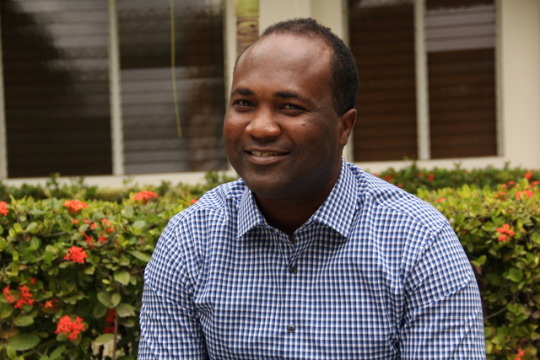
A Life Changed
By Joshua Reichard:
I had the joy of interviewing Daniel Jean-Louis who was born and raised in Haiti.
Blessed at a young age, Daniel had the opportunity to be a part of our Child Sponsorship Program. Through this program, God used Baptist Haiti Mission and Daniel’s supporters to change Daniel’s life forever. I am always encouraged to talk to individuals influenced by the Child Sponsorship Program (CSP). Daniel is now a Liberty graduate where he received his Honorary Doctorate. Daniel is married to Ketia, and God has blessed them with two children, Brianne (4) and Meyer (4). Daniel is now the owner of Trinity Lodge in Haiti, the initiator of 100K Jobs Haiti Coalition, CEO of Bridge Capital, and co-author of From Aid to Trade.
Here is what he had to say about being sponsored as a child.
I am not sure how I was placed in the CSP, it must have been through God’s grace. When I was young, I can remember writing letters and coloring pictures to the family who supported me. However, I never was able to meet the family that helped me. I wish I could remember their names so that I could say thank you to them. Either way, it is a joy to know someone cared about me enough to help me receive a Christian education. One thing I enjoyed about the program, was the opportunity it provided for me and my sponsor to communicate. If you sponsor a child, I would encourage you to write to them as often as you can. It indeed is a blessing to receive letters as a child. It helped me understand that there were real people out there who cared for me and took time out of their schedule to let me know they loved me and cared for me.
Q. Did the CSP introduce you to God?
A. Yes and no. My father was a pastor in Haiti, and he was the one who led me to the Lord. But CSP encouraged me in my faith and helped me in my sanctification. The program helped me to understand the spiritual community. It taught me that community is critical for living a godly life. Community is what builds the church; the community is what brings believers together.
Q. Did you enjoy being a sponsored child?
A. Yes! It is a life-changing experience to know someone on the other side of the world cares for you. When I was too old for the program, I was sad because I could not receive that love anymore, though the experience did help me see how much Christ loves me, as the one who made me and knew me before I was born. The CSP taught me to care, love, communication, how to relate, and how to trust. Things that will always influence the way I live life and do business.
If I could say one thing to those considering sponsoring a child, I would say it is one of the greatest gifts that a child will ever receive.
Education and community are fundamental in a child’s life, and without this program, most children will receive neither of those things. Haitian parents, most of the time are unable to provide a good education for their child due to lack of resources. When you sponsor a child, you are helping train individuals in Haiti to become better citizens of tomorrow.
BHM is a large community with faithfulness built into its core. One of the reasons I continue to support them and encourage other people to do the same is for that very reason. The steady supply of staffing and resources help build the eco-system to help disciple the children of Haiti. BHM does all of this and more. But what is most notable about them is their stand for the Gospel. It is only by God’s grace that BHM can help change the lives of countless children.
Q. Can you tell me about your experience going to Liberty University?
A. I was blessed by the Turnbull Learning Corporation program, which enabled me to leave Haiti for a time and receive an excellent education from Liberty University (The TLC was started by Dr. Falwell and Wallace Turnbull, and allows students in BHM churches and schools to go to Liberty if accepted). Schooling there was hard. Liberty is a world-class university in the most developed country in the world, versus Haiti, the least developed country in the Western Hemisphere. Quite simply, I was not entirely prepared. However, it was one of the most exceptional experiences in my whole life. I was able to have fun in the dorms while learning the American culture with American students. Liberty also set me up for success. It was a joy to see the knowledge, material, logistical planning, and many other things that Liberty had going for them.
Along with the challenges of college, I found it very hard to transition from a poverty-stricken land to one without lack. All I had known growing up was lack and this sense of brokenness. When you grow up following a broken model, it is almost impossible to follow the correct model. Not because you do not want to but because the broken model is a self-replicating model that keep poverty-stricken people in poverty. I am grateful that BHM, Liberty, my supporters, and God helped me out of poverty to where I can now make a difference in Haiti.
Q. How do you help Haiti now?
A. I wrote a book, called From Aid to Trade, that helps people understand Haiti’s market economy. As such, trade will cause it to grow as it does in the rest of the world. Poverty in Haiti is man-made and is unnecessary. My book provides a framework on how to change this around. Also, I still live in Haiti, and my businesses are in Haiti. Another way I am striving to give back to Haiti is by being involved in my local church in Coridon.
Lastly, I wanted to mention the Turnbulls’ impact on me and Haiti. They are not just heroes in Haiti; they are legends. They have raised generations through education, church planting, and many other programs. They do not only impact people, but they also provide a correct model to follow, to inspire. I am a direct product of their influence, so are most people in Haiti.
Therefore, if you are thinking of sponsoring a child, do not hesitate. Act now.
1 note
·
View note
Photo
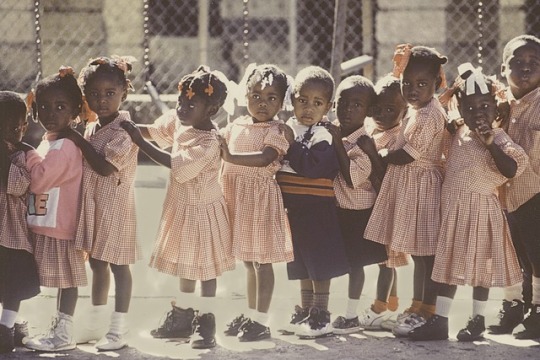
Slavery and Deliverance in Haiti
By Jeff Dalrymple
Haiti is a beautiful country filled with families that, like all other people, desire fulfilling lives for their children. Unfortunately, natural disasters and human rights issues have plagued this country for much of its history.
Slavery, in particular, has been an ongoing struggle in Haiti dating all the way back to the year 1664. It was this year that France formally took control over the region that would one day become Haiti and began using the fertile land to grow tobacco, cocoa, sugar and other highly profitable goods. In order to maintain and grow their empire the French imported countless African people to work as slaves. This was the beginning of what became a long history of abuse of humans as slaves. In 1791 a slave rebellion was led by one of the enslaved men named Toussaint Louverture. After long, arduous and costly fighting the enslaved people were able to liberate themselves from the grips of the French and the free nation of Haiti was established in 1804. This slave revolt in Haiti was hugely impactful. It effectively ended the European slave trade in Haiti and initiated the decline of European slave trade internationally as well. Many believe that this rebellion stands alone as the only successful slave revolt in human history. This incredible history of deliverance should be what characterizes Haiti. Tragically, a new form of bondage has arisen in Haiti that threatens a new generation, it is known as restavek.
Restavek is the practice of impoverished families allowing their children to be “adopted” or selling their children to wealthy families in the hopes that their children will be given a better life. However, in many cases, these children become domestic slaves. The term "restavek," is native Creole and comes from the French words rester avec, or "to stay with." Meaning that the children are “staying with” the new wealthy family rather than their own. Around 60% of restavek slaves are females, and they are often forced to work grueling days being tasked with various duties around the household. Restavek slaves typically start their day by escorting the biological children of their host family to school and carry the student’s books so that they don’t have to do so themselves. Then they return to their homes and carry out the other assignments doled out by their masters. These jobs can include scrubbing bedpans, retrieving water from wells, cooking meals, caring for other children, and more. Sadly, they do all of these things for very little monetary compensation, if any at all. In most cases, the only payment received by restavek children comes in the form of scant meals and a place to sleep.
The restavek slave trade is prominent in Haiti largely as a result of the widespread poverty in the country. While slavery is illegal in Haiti, it thrives due to a state that has very limited resources, even in law enforcement. Haiti is ranked as the poorest nation in the Western Hemisphere, with approximately 60.7% of the population living below the poverty line and a 50% unemployment rate. There are several tragedies that have primarily created this mass level of poverty. Two of the most devastating events have been earthquakes and hurricanes. Other contributors are disease outbreaks and famines in recent years. These disasters have decimated the infrastructure of the country and created dire circumstances for the population. In some cases, the practice of restavek has been practically forced upon impoverished families. They see no other option for the care of their children other than to give (or sometimes sell) their children into domestic slavery so that they may survive.
It is estimated that 1 in every 15 children in Haiti are enslaved as restaveks. Many restaveks are born into caring families but the severe financial distress of the country crushes their ability to provide for their children. A substantial number of families are unable to support their children with basic necessities. Schools are few and far between, particularly in rural areas, so most children don’t have the opportunity to receive an education. Which is even weightier considering that education is crucial in breaking the cycle of poverty. It is out of this desperation that many parents turn to selling their children to be used as domestic slaves, restaveks. So they bid farewell to their young children and offer them as restaveks in the hope that it will enable them to live a better life, but prosperity for these children is the exception rather than the rule.
Deliverance from restavek slavery will not be able to echo the deliverance that was won in the 1700s because this modern slavery is endured by children. These children are separated from their families and are powerless to their circumstance while their families believe that they have helped them. This practice of restavek is heartbreaking to consider.
Christians should not turn their eyes from this wicked reality but rather, be motivated to seek justice and freedom for these children. There are many Christian organizations committed to ending restavek slavery in Haiti but they can’t do it alone. Evangelicals can join in deliverance for these children by seeking the Lord in prayer on their behalf, becoming more educated about the state of Haiti and joining in partnership with BHM or one of the other many organizations developed to bring change to Haiti. Though these efforts and the work of the Lord deliverance can come to these children.
-Works Cited-
http://www.slate.com/articles/life/history/2015/08/the_most_successful_slave_rebellion_in_history_created_an_independent_haiti.html
https://restavekfreedom.org/
https://restavekfreedom.org/issue/
http://www.reuters.com/article/us-quake-haiti-restaveks-idUSTRE61H3F920100218
http://www.endslaverynow.org/media/2686/vlad-sokhin-restaveks-haitian-slave-children-2.jpg
1 note
·
View note
Photo
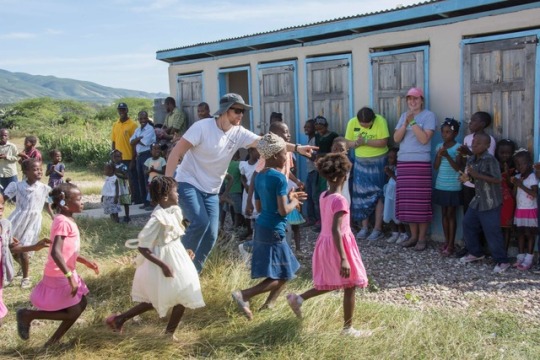
10,000 Reasons
By Darci Arnett:
This past December I was blessed with an opportunity to serve in Haiti for the third time. During this trip, the team traveled to Atrel to help put up fences, and carry rocks that would soon create a rock wall. Along with the manual labor, we also helped run a VBS program for a local church. The highlight of any missions trip for me is always playing with the children. And, therefore, I completely expected it to be the highlight of this trip as well, but God had other plans.
On the second day in Atrel the morning work was complete and so was the last day of VBS. We made our way back to camp for free time and dinner. During free time some of the Haitian workers (Johnny and Timothy) needed to go to the village to buy some charcoal. Some of the girls talked Johnny and Timothy into letting us go with them. Once we had arrived at our destination in the village Johnny and Timothy hopped out of the gator and left us there in the middle of the road surrounded by tons of little Haitian children, I was in complete bliss. Soon after they left I began playing with the children, an elderly woman stepped out of her home and walked up to us. I asked the children if I could take their photo, but the elderly woman answered for them with a not so lovingly no. Brushing this off my shoulders I continued playing and singing songs with the kids. The only song I knew in creole was 10,000 reasons, so I began to sing, and surprisingly the children sang along with me… mission accomplished, right? Wrong. It was now time to leave, and that’s when I heard it. I heard a loud humming in my ear, a humming in the tone of an elderly woman. In my head I was thinking, “There’s no way” but sure enough I turn around to see the not so friendly elderly woman humming along to 10,000 reasons. Completely taken over by the Holy Spirit I walked up to the woman and began to sing with her. She held out her hands and lifted her head to the sky. I was worshipping the Almighty God with a woman who could not even speak the same language as me. While I was singing God answered two of my prayers. He answered a prayer that I had written that morning begging Him to give me an opportunity to break the language barrier and share the Gospel with others. He had also answered a prayer from months before when I was in a state of fear and confusion about what my future would look like. During that moment of pure worship He so clearly showed me that ministry is my calling, and I have never felt more at peace about a decision before in my life.
Trust me I know being patient is like pulling teeth (especially when it has to deal with huge life decisions), God may take you down the road or to another country before He sees fit to give an answer... but I promise God’s got your back. Stay Faithful Y'all!
You got the Creator of the Universe looking out for you��� How awesome is that?
My love always,
Darci
1 note
·
View note
Photo
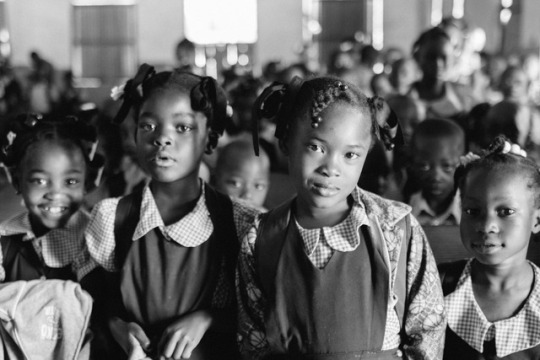
The Unfamiliar becomes Familiar
By: Liz Swanigan
After being here for three months, it’s hard to imagine what my first thoughts about Haiti were six years ago on my first visit to Haiti. So many things seem very normal now. Crowded tap taps, ladies with huge baskets on their heads, goats and chickens everywhere, and a never-ending stream of new Creole words are the new normal. Even though I’m only a few thousand miles from my home, I feel worlds away.
Yet this place that has felt like an entirely different world has somehow become home in just a few short months. The community here is sweet. I have been loved and served so well since the moment I arrived. I’ve been humbled by how the missionaries, other interns, and Haitians have graciously sought to sacrifice for me. There has been a constant source of meals, encouragement, coffee, conversations, notes, and laughs shared with my new friends. And while loneliness sometimes seemed to creep in, it has never stayed long. Too many people have been seeking to make sure I’m okay for me to feel anything but loved here. People who were strangers have become like family and will always have a part of my heart.
The thing about being a world away is that everything is new. Nothing is familiar, and in that unfamiliar place, the Lord seems more evident. He has used Haiti, a place that I thought I knew, to reveal more of Himself to me in all the newness I’ve been experiencing. In the slower pace of life, He’s helped me recognize ways He’s working and His goodness that is present in every moment. I’ve had so many excellent days since I arrived. Days and nights in this community are filled with laughs and sweet memories. Joy comes easily here like it’s in the air. Jesus loves these people and this place.
But something I’ve been learning is that He feels that way about every place. There is nothing inherently special about Haiti. This place is special because He’s here, but He’s everywhere. I have always said that Haiti feels like home like somewhere I belong. But I see now how foolish it is to find a sense of belonging in a place, a job, or another person. I belong wherever He is, and He is with me wherever I go. I have felt a new level of freedom in understanding that while God will lead me where He wants me to be, knowing Him is ultimately life’s greatest adventure. I have always had this unshakeable feeling that my life was made for something significant, something “more.” It wasn’t until this summer that I realized the “more” I was created for is Him. He is the best and only thing I need. Where I live or the job I have are simply means to know and glorify Him, and the best place to do that is wherever I’m at. For this summer, that’s been in Haiti, and I’ve had so many opportunities to love and serve people. I will forever cherish the memories and people I’ve met through this experience. But the biggest thing I’m taking home with me is a deeper intimacy with the Lord. He loved me enough to bring me all the way to Haiti just to show me that He is all I need.
So I’m thankful for my days here – the long ones where all I do is work in the office, the slow ones with lots of time with Jesus and friends, the hard ones where I’m really missing home, and the joy-filled, crazy ones where I can’t imagine being anywhere else. This time is sweet even when it’s hard - amidst the craziness that is life in Haiti, it is so evident that the Lord is working. As I go home and onto the next adventure, I look forward to knowing Him more and serving Him where I’m at, Haiti is an amazing place, but life with Him, wherever that leads, is the best place to be.
3 notes
·
View notes
Photo
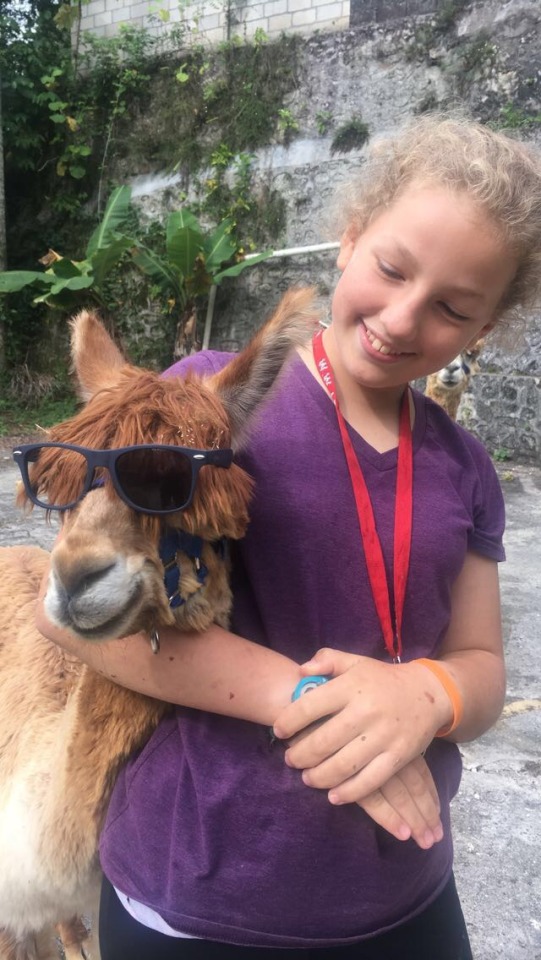
Alpacas in the Zoo:
Because of the lack of infrastructure in Haiti, luxurious amenities such as public parks, museums, and zoos are virtually non-existent. Our humble little zoo is the only zoo in the entire country. The few other museums that exist throughout the country are not free to the public, and many of the places intended to be public parks are not family-friendly. So, the daily struggle for many families to make ends meet exclude most of the population from participating in these kinds of activities. That is why we continue to own, operate, and improve Noah’s Ark Zoo. It is a ministry in and of itself to have a family-friendly, open campus where people can come and enjoy a relaxing and educational experience as a family without incurring a financial burden or worrying about their safety.
Unfortunately, many of the animals in the zoo died soon after the destructive earthquake in 2010. For a while, the only exotic animals were snakes and birds. Many members of the community still ask about what happened to Charlie, the monkey. It was an amusing tradition for new students at the Summer Bible Institute to be initiated by being made to go to the zoo and evangelize to him. But, thanks to the generous support of several donors, we have begun to acquire more exotic animals such as the crocodile, peacock, and most recently the alpacas.
Two weeks ago, three nervous and tired alpacas arrived at the mission. They had been traveling for two days to get from their donor’s farm in Indiana to their new home. Many people stood around to watch the spectacle as their traveling container was unloaded. The locals, who had never even heard of alpacas, didn’t know what to expect to come out of that container. “They’re related to tigers,” Noah joked with one of the employees as he unlatched the door. Before he had a chance to tell him he was joking, Shama was halfway down the road, and three goofy fur-balls came prancing out of the container making humming noises akin to a confused cartoon character as they began to take in their new surroundings.
Since then, they have settled into their new home and have been a very entertaining attraction for many people in the community. Please pray that the mission staff can exemplify Christian community and act in the love of Christ towards the thousands of people who visit each year.
1 note
·
View note
Photo
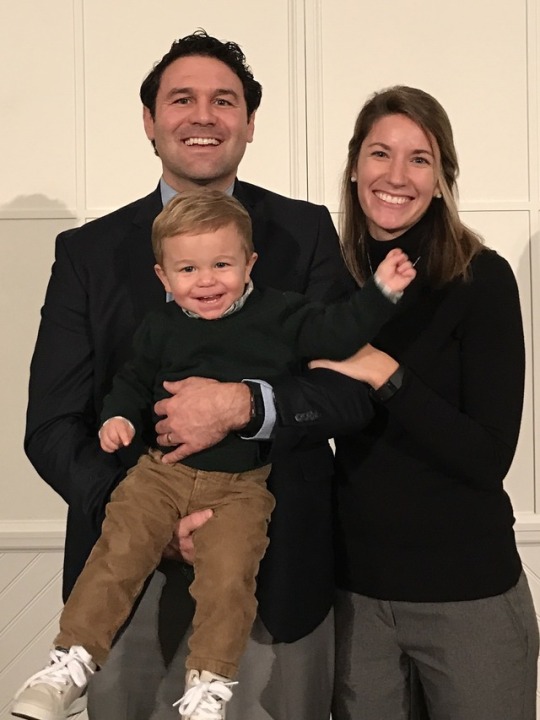
Why Pray
By Aaron Scott
As a child, my father led us in what we called “family altar” each night before we went to bed. We would spend time in our family room reading a Bible story, a character story, or some exciting adventure story with a biblical principle.
Afer we finished our storytime, we would drop to our knees as a family and pray together there by the sofas.
As a 5-year-old kid, our family prayer time seemed like it took ages each night before we went to bed, especially when my favorite Colorado Rockies games were on the radio. We had a system of prayer as a family—my dad would lead us in prayer, then the four of us children would pray from the oldest to the youngest (I am the youngest), and my mom would close out our prayer time. For whatever reason, my mom seemed to pray for three hours! Now, she probably only prayed for two minutes or so, but as a child, I remember thinking, “Wow, mom! Why do you always have to take so long to pray?” My mom would always seem to take longer because she would pray for special things. She would pray for special people in our church and their special needs; she would pray for special neighbors and friends’ salvation. She would also pray for the special needs of us children. She would pray for my dad. She prayed special prayers to God about special needs, and she prayed with all her heart. As a ve-year-old child, I was bored out of my mind, but I was learning from the life example of my mom and dad. Prayer was a vital component of our family DNA and, as I look back at that time, God used that family prayer time to teach me the importance of prayer.
So, as a 32-year-old youth pastor, husband, soon to be father of two, and Development Director of Baptist Haiti Mission, what role does prayer play in my life now? Prayer is everything to me! As I work through how to grow Baptist Haiti Mission and its impact on this world for Christ, I and myself constantly falling to my knees. One verse that keeps coming to mind is Psalm 127:1—“Unless the LORD builds the house, those who build it labor in vain. Unless the LORD watches over the city, the watchman stays awake in vain.” There is nothing of eternal value in this life that I can accomplish apart from God’s grace. God must do the work in His way and in His timing if Baptist Haiti Mission is to continue to make an eternal impact in Haiti. D. Martyn Lloyd-Jones once stated, “Prayer is beyond any question the highest activity of the human soul. Man is at his greatest and highest when upon his knees he comes face to face with God.” Mary Slessor, missionary to Nigeria, once said, “Prayer is the greatest power God has put into our hands for service.” God has commanded us to seek Him in prayer and to ask Him for help. What an awesome privilege to come before the throne of the Almighty God and ask Him for help!
As I sit and work in my American office, what can I do for Haiti and Baptist Haiti Mission? I have not been called to go to Haiti, but I am eager to see Haiti reached with the Gospel. What can I do? I cannot even breathe without God’s consent, nor my heartbeat without God’s command. My eyes cannot see, my ears cannot hear, my feet cannot walk without God’s intervention. Who am I to think that I can move the heart of an unregenerate man to hear the sweet words of the Savior and be saved? Who am I to think that I can adequately reach the children of Haiti with education and the gospel message unless God equips me? Who am I to think that I can raise funds needed for a hospital or a translation project? I am sitting in Louisville, Kentucky, and the needs are due south in Haiti! But God has given me such a great tool that overcomes the problem of distance from Haiti—prayer. As a child of the King of kings, I can ask Him who is omnipresent and omnipotent to do the work.
The greatest work that I can do for Haiti is to go before the throne of God on my knees and plead for Him to do a mighty work in Haiti. God must do the work in Haiti, and I must seek His face and obey His leading if anything is to be accomplished in Haiti for the glory of God.
1 note
·
View note
Photo
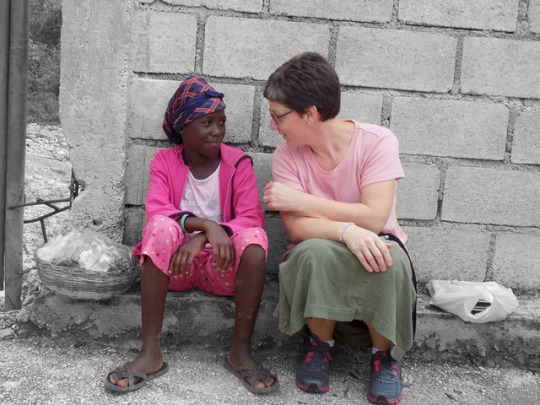
Let the Deaf Hear
By Melanie Dearing
About 20 years ago, a little boy came to a Baptist Mission preschool for the first time. Jacklin was very similar to the other children, yet different. His family wanted the best for him. They saw him for the smart little boy that he was, but he had gotten sick with a high fever and had become deaf. The Child Sponsorship Program knew that the schools could not adequately educate Jacklin, but that did not mean that we could not be a part of his education. At that time, no one could have known how the Lord would use Jacklin to pave the way for others.
A visiting team involved with church partnership was making repairs to a school building in a rural area. A bright-eyed girl stood outside the gate smiling as she watched the children play in the schoolyard. She was not in a school uniform so I assumed her family could not afford the fees for school and that she did not attend. She carried a basket of chips to sell. I borrowed a few gourdes (the local currency) from a friend and asked the girl how much the chips cost. The girl did not say anything but just shook her head and smiled sweetly at me handing me the chips. An interpreter standing by thought perhaps she did not understand my Creole, so he spoke to her again. The principal of the school told us the girl was mute. To which I asked, “Is she deaf too?” The answer was yes.
I spent the afternoon with Chama, quickly falling in love with her. I invited her into the schoolyard to thumb through some books and then showed her a few American Sign Language (ASL) signals that she quickly learned and mimicked back to me. Chama did not have a formal communication system and used made up signs to communicate with her family.
The Lord paved the way for Chama. He used Jacklin, who stopped by to visit to give us the information we needed on his school even though he was not attending at the time due to the fee being too expensive for his family. He used another little boy, the son of a street vendor, who was home on break from the same school Jacklin mentioned. The Lord used Nixon, a mission employee who knew Chama and her family and were able to lead us to her home and go along to help us communicate to the family the opportunity for Chama to go to school.
This ministry exploded in my heart! So many doors were opening for Chama to be able to go to school and maybe Jacklin could return as well. I have struggled with the Creole language since we arrived in Haiti, but now I see a people group that I can communicate with via ASL. Do you know that the deaf population remains the largest unreached people group? There are approximately 250-300 million deaf people in the world, and only 2% of them are Christians.
As I shared with family and friends about what the Lord was doing, He provided the funding for both Chama and Jacklin to go to school for one year. Because there are limited populations of deaf students in given areas, most children must attend a residential school unless their families are able to move closer to the schools. Residential schools are even more expensive. They require upfront payment for lodging, food, the internet (because people who are deaf cannot just make a phone call on their cell phones), uniforms, books, teacher salaries, housekeeping salaries, toilet paper, toothpaste - all of the things you need for school and all of the things you need to take care of the entire population of a school on a daily basis. Since learning about Chama and Jacklin, other children who are in need have come to the mission. Below you can read about each child:
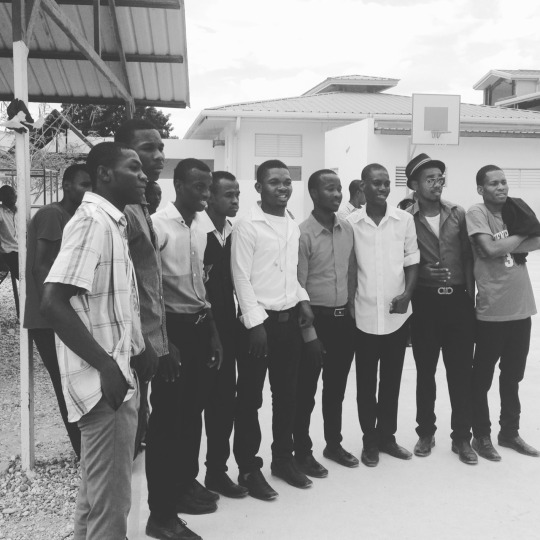
Chama: 12 years old, going into 3rd grade next year. Chama’s education has been paid for 2017-18 school year.
Jacklin: in his early 20s. He has two years of tailor training left, and then he graduates.
Smid: 17 years old. He is going into the 3rd grade. His father is a pastor in the Central Plateau.
Washon: 8 years old. His father is a pastor in the Northwest.
Sandia: 14 years old. Sibling of Washon.
Dimitry: 13 years old. He is the nephew of a mission employee working in child sponsorship.
*Smid, Washon, and Sandia’s father's pastor churches that are six to eight hours away from the school. It is an additional expense for the family to have a child living in the dorms at the residential school so some families actually choose to live closer to the school and the fathers travel for work.
All of these children are in need of financial support to allow them to continue their education. If you are interested in supporting them, you can give on the website at www.bhm.org and give to “Special Projects.”
0 notes
Photo
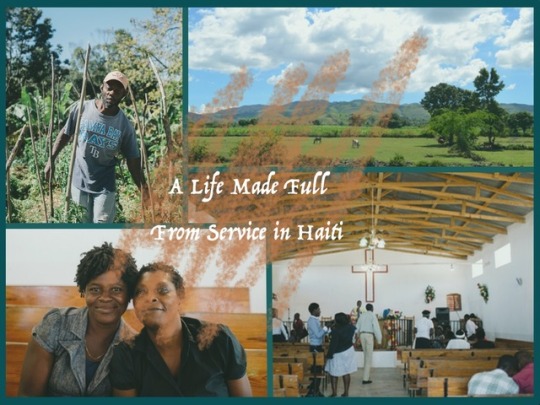
Specific ways Life is Richer because of Serving in Haiti:
It was easy to see a theme of God’s presence and provision as I talked with the Bakers. Mrs. Baker reflecting on their time in Haiti said, “Life has been richer after serving in Haiti in the fact that I see that the Lord sustains you.” She went on to admit that Rob was not the best-qualified man to be a field director in Haiti, yet he was, for a time, and God sustained them and allowed them to thrive in that position. Pattie also noted that after serving in Haiti she sees God is at work everywhere in the world and at work in everyone. Rob told a story of two senior women who he met on the mission. One would kiss him on the check every day and say hello to him; she was kind and also a hard worker. The second lady was a little younger, and he had a problem with her. She began secretly using BHM property to cultivate a garden of her own. When it was discovered, Rob had to remove the garden and tell her she could not be growing a garden on their land. He retold the story to one of the pastors who said he needs to reimburse the lady for her garden. Rob was stuck in a hard position because he realized he needed to help this woman with what she lost but also knew that if people found out that they would get money for cultivating a garden on the mission, then everyone would do it. Rob confided in some close friends, and together they found a way to help the lady without putting the mission in a hard place. A few days later, Rob ran into the woman again on the mission, but this time she is cleaning. Because of the kindness shown to her, she asked to work for BHM, and now she is one of Rob’s close friends.
It is amazing to see God transform lives. He can change what seems to be a bad situation into something that brings Him glory. That lady would never have thought that having a garden on the mission would result in a close friendship with the director himself. God uses unusual events, so His grace will never be overlooked!
Working Through the Institutional Agenda vs. Relational Agenda:
Most of the time people think “oh I will go on a mission’s trip and help build a house, or clean the water, or run a camp,” but they fail to build relationships. Rob and Pattie stressed that there is a balance. You cannot go to a third world country and simply preach a gospel message and then leave and expect it to make a difference. In many circumstances, a trust must be earned before people will listen.
How did Rob and Pattie balance this heavyweight? They focused on relating and talking. Every day before Rob left the house, he would set before him 4-6 tasks to accomplish. On his way to the office, it was inevitable that he would run into someone who needed something. He had the choice to ignore them and say that his tasks are more important or to place importance on the person before him. Rob explained to me that he always left early for the office because he knew he would run into someone. He chose to stop and listen to those people and help them if he could. Once he finished, he would then go into his office and focus on the tasks of the day. Relationships are fundamental in missions’ work, and God calls us to help people's physical needs as well. Luke 10 reveals to us that as believers it is our responsibility to help those in need. If we see someone hurting, do not walk by and say Jesus loves you. Instead, pick them up, help them to your best ability, and build a relationship with this person so they can experience that Jesus does love them. You are God’s representatives, therefore, go into all the world sharing the gospel and helping people in need!
What Can Those in the States do to Help our Missionaries:
First and foremost, they can pray. Go to our website and see ways our missionaries need prayer. Write them an encouraging letter. Share resources that you think may be useful for their ministry. You can also choose to financially support a missionary, sponsor a child, or donate to BHM.
Baptist Haiti Mission exists to glorify God by strengthening His church, proclaiming His gospel, equipping His church, and demonstrating His love.
0 notes
Photo
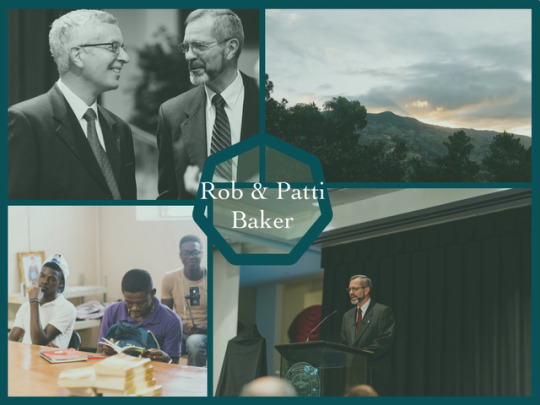
2010 Earthquake:
Civil riots, coup d’etat, hurricanes, and earthquakes are all things that the Bakers faced during their ministry in Haiti. From 2003 till 2015 the Bakers went through a lot of difficulties, but God kept them safe. A brief timeline of their hardships began in 2004 with a hurricane and the impeachment of the president which led to civil riots. In 2008, four more devastating hurricanes hit in a matter of months. Then in the climax of disasters, the earthquake hit in 2010 that devastated Port-Au-Prince.
The impact of this earthquake, however, stretched beyond destruction. In the extreme difficulty following the earthquake God was fostering an even stronger need to rely on Him. By His grace and love, an abundance of help was provided for BHM. In this time of stress and hardship, the Bakers saw the Church rise and help those around them. The churches that BHM works with started having all day services of prayer and worship, they set up tarps for those who lost their homes, and they partnered with Samaritans Purse who helped them train individuals so that they could go back and help others in their hometown.
On the day of the quake, Rob Baker and Chris Lieb were in their office talking about two projects that needed to get done, but they could only afford to do one. As they were talking, they started to feel the room shake violently, so, they ran out in haste. Once the shaking stopped, and they made sure everyone was safe they started checking the buildings for damage. The only building that collapsed on campus was the one they were talking about fixing. God answered their prayers by damaging the building in the exact spot they were going to tear down and repair. God is faithful to those who love Him. The light of Christ in the midst of the deep suffering caused by the earthquake is an incredible testimony of the character of God and his work through BHM.
Standing Strong in the Midst of a Natural Disaster:
“You remain secure by knowing that where you are is the safest place on earth.” Mrs. Baker said. The Bakers knew that Haiti was the place God wanted them to serve. If they were to leave they would be in more danger than being in the eye of a hurricane if that is where God wanted them to be. The testimony of the Bakers faith and trust in Jesus is beautiful. As believers, we are called never to fear because God is for us. Therefore, when disasters come, and persecution is everywhere, remember God is with you and will keep you safe in all things. An excellent picture of this was when the hurricane hit Haiti; Rob told his whole team, “If you need to leave and go back to the US, I would not be angry.” Not a single member of his staff left. Why? No one left because they all trusted in God’s words in Joshua 1:9 “Have I not commanded you? Be strong and courageous. Do not be frightened, and do not be dismayed, for the Lord your God is with you wherever you go.” Though this verse is directed specifically to Israel, the implications of this text are applicable to all believers. God does not let those who are his children falter or fail. He guides them and protects them through it all and in all circumstances. It is a blessing to see men and women trust in God’s protection.
Reflection:
1. Are you where God wants you to be? If so how do you know?
2. Do you trust that if God is for you, no one can stand against you? Why?
0 notes
Photo
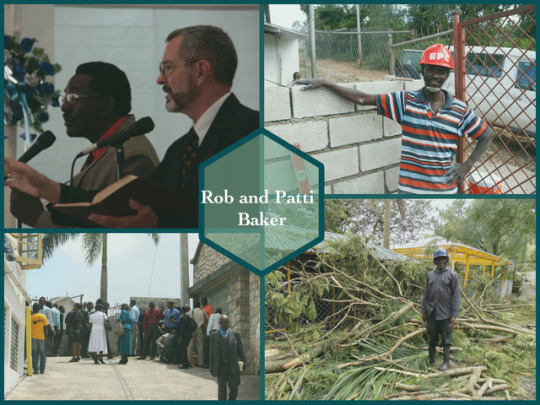
Rob and Patti Baker: Testimony
It was my privilege to sit down with Former BHM Director Rob Baker and his wife Patti to talk to them about their 12 years of ministry in Haiti. As they recounted story after story, I was struck by their humble devotion and faithfulness to the gospel of Jesus Christ and sharing it with the people of Haiti. The following excerpts are derived from my interview with them.
The Heart of Baptist Haiti Mission:
As I talked with the Bakers, they explained that at the heart of Baptist Haiti Mission is the local Church. There is nothing more important to the leadership and mission of BHM than the individual community of believers spread throughout the country. Missions is not just about helping the physical needs of individuals; its priority is first and foremost the gospel of Jesus Christ. “The thing is we can have people come to the hospital and help their physical needs, but we if we do not share the gospel they are still going to hell,” Rob explained to me. What a hard yet powerful truth. BHM’s priority is not building churches or schools; but rather to build up spiritual communities and real relationships with God. Relief work is a part of that, but if the gospel is not at the center of the relief, then we are only making people’s lives a little easier before they are condemned. Commitment to the Church is fundamental in any ministry that is going to further the kingdom of God.
How did they Teach about the Church?
“When a chicken gives birth, what does it bear? A chicken. If a goat gives birth what does it bear? A goat. Therefore, if a Christian gives birth to a baby, then that baby is a Christian. Right?” Rob Baker explained that many people fall prey to this “chicken mentality”. They assume that their child is a Christian because they are a Christian and that they are a Christian because their parents were Christians. Witnessing to people who assume that faith is transferred through generations is tough work. The Bakers had to approach the way they shared the gospel in a new way. They emphasized that faith comes from a personal relationship with Jesus Christ, and focused on explaining that salvation is not a community event but rather it is a personal one and you can only inherit salvation through Jesus Christ. Throughout the Bakers time in Haiti, BHM focused on training pastors to teach Romans 3:23, 27-30 where Paul reminds believers that all have sinned and have fallen short of the glory of God. Rob and Patti had to carefully communicate what it means to be a Christian and how is it that God saves individuals for others to understand the gospel.
Reflection:
1. Do you believe the church is important in the life of a Christian?
2. How do you minister to those who believe they are saved yet still living in sin?
0 notes
Photo
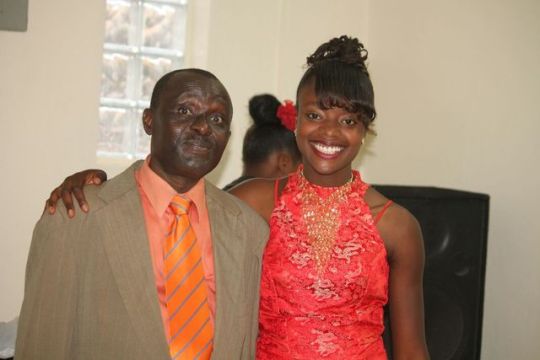
A Life Changed:
Deborah sat quietly backstage, a slight smile never left her face as she patiently waited for her cue. Chante Pou Libète (Songs of Freedom) was one of the largest singing competitions in Haiti, and she was chosen as a finalist. Thousands of people were outside cheering as other contestants sang songs they had written about child slavery in Haiti. The event was put on by The Restavek Freedom Foundation in order to raise awareness to end child slavery known as “restavek” in Haiti. As Deborah entered the stage, a wave of nerves swept over her, but then she remembered why she was there. It was not only about the competition, she was singing for something other than herself… she was singing for the children.
Deborah St. Fort is a former sponsored child of BHM’s Child Sponsorship Program. As a young child, she began attending Fermathe School just a stone's throw from BHM’s campus. At nine years old, she was given a violin by Mary Todd, a missionary with BHM at the time. Classical instruments are rare in Haiti, and Deborah knew that this was a special gift. She treasured her violin and dedicated herself to learning how to play through whatever means she could find. For a time she was able to take lessons from another violinist, but after a while had to resort to teaching herself.
One of Deborah’s fondest memories of her school days was when she, the only violinist at school, was asked to play for a school devotional service. Since then, Deborah’s music career has blossomed. Along with being a competitor at this year’s Songs of Freedom contest, a prestigious competition that has been heralded as “Haitian Idol” by NPR and CNN, Deborah has also won several other musical awards.
Despite her accomplishments, Deborah maintains a humble outlook regarding her talents: “Jesus is my everything. He has helped me throughout my life, and all of my accomplishments are because of Him.”
She is now studying Social Work at UNICA in order to become a children’s counselor, and she also dreams of someday opening a music school. She has already begun teaching a handful of children how to play the violin. She is grateful for her education through BHM’s Child Sponsorship Program because she has seen how God has used it to prepare her for success and to continue in higher education. Deborah’s story is just one of many. There are thousands of sponsored children, and each of their stories are unique. By sponsoring a child, you help provide hope and a future for these children. Please, consider sponsoring a child through the Child Sponsorship Program.
0 notes
Photo
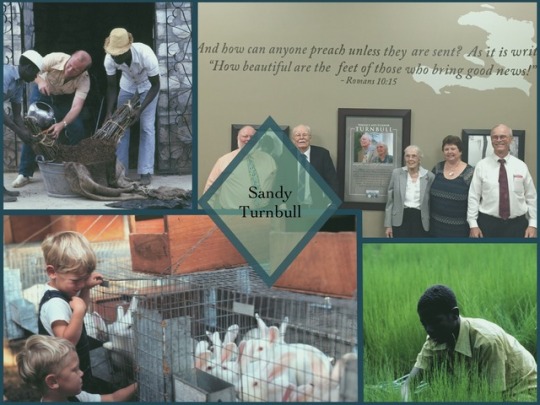
Dual Citizenship:
My Journey to a Wonderland Called the United States.
When I was nine years old, my parents took my family to the United States. It was very different than Haiti. Along the complex American highways, I would count 18 wheels on a semi-trailer and wonder if I had counted right. I had never seen a truck with more than six wheels. We visited Niagara Falls in December when it was 20 great degrees below zero. In Canada, we learned to skate with our cousins. I attended my first public movie—“Gulliver’s Travels.” In Chicago, we saw the world’s finest zoo, which was loaded with “firsts.” My parents took us around like a tourists, seeing the Capitol building in Washington, historic Philadelphia, the Empire State Building, the Statue of Liberty, and many other things that they thought would help me understand our country and its greatness. It all seemed like a dream. The real wonders to me were the vending machines, where candy and gum fell down, along with elevators, escalators, telephones that worked, organized and smooth traffic, and multi-lane highways! I loved the speed of the traffic. But I never felt that I belonged to this world. It was excellent, efficient, clean, and well organized; but I could not find my place in it.
The people spoke of hospitals and doctors as far away, mysterious, untouchable things. In Haiti I had watched operations, doctors struggle to make a newborn baby breathe, and teeth pulled by the dozen. I had held flashlights and lanterns during blackouts so doctors could sew deep wounds. In the United States, I was intrigued at how the people tiptoed around funeral homes and whispered about death. I thought they were strange to consider death fearful and unreal – almost as though they tried to deny it. In Haiti, I used to pull from our containers the threadbare garments for burying the poor. I had learned that the stronger clothes must be kept for the living.
Driving through the countryside I saw “Dog and Cat Hospital” signs I couldn’t reconcile this with the worry I had seen on my parent’s faces in Haiti as they discussed children with tuberculosis or other illnesses, and no funds to buy the needed drugs. To me, everyone seemed rich, large, and unhappy. I was glad to return to Haiti where the people were poor, contented, and smiling. Friends offered to keep me in the USA and put me in an American public school. Happily, for me, my parents brought me back to my other world. My parents did not lead the narrow, conventional life of many foreigners in Haiti. We lived among the masses and spoke their language where Haitians were my friends.
I remember that my adopted grandparents, the Sanders, for whom I had been named, worried that I would see sights and hear talk not fit for children while in Haiti. True, I saw starving people, blind people, and disabled beggars surrounding our car whenever we stopped in Port-au-Prince. I also saw swollen children dying from protein deficiency and little ones abandoned before our door. Three hurricanes in 10 years devastated the mountain area. Instead of regarding it as too ugly to see my parents put me to work in relief efforts, I learned that trouble and suffering can always be relieved if God is with us. My parents made no distinction between peoples. Their closest friends were Haitians. We learned by example to judge an individual by character and integrity rather than by race or sect.
Where is my True Home?
When I was eight years old, the Sanders of South Carolina gave me a stamp album. Stamps and reading have always been close comforts as I have grown up. The knowledge of geography and history gained from serious stamp collecting was helpful last year when I accompanied my parents on a four-month visit to the Middle East and Europe. It was fantastic as travel can be for a 14-year-old boy constantly with his mom and dad in a car pursuing an adult interest. I enjoyed ten days in Egypt– Cairo, Luxor, and up the Nile to Aswan. Easter in Jerusalem with 40,000 pilgrims, Muslims, and Christians, was most enlightening.
In Europe my parents wanted me to be interested in the Louvre, the catacombs, etc. One day in Rome as we stood in an elevated park to see the view of the city, I went after a balloon man and bought a helium filled balloon! It was the first one I had ever seen. My parents forgot that while they were seeing historical Europe, I was seeing civilization away from the little Caribbean island of Haiti.
In Paris, the Metro closed before I was inside. My parents thought I was in the second car, but when they got off at their destination, and I was not there, my mom panicked. She supposed that I had failed to get off and would continue far under the confusing city of Paris. Babbling Haitian Creole, English, and poor French to the nearest policeman, she was waving her arms like a normal French woman in distress. Eventually, I made it on the Metro and found my parents and all was well.
In three years I’ll be asked to make a choice of citizenship. The United States does not recognize dual citizenship. Already, I am being schooled to be a full-fledged American, which is what I want because I admire the greatness of America. I love the peace and security she affords. I will wear her military uniform with pride. I will vote and thus feel a part of her government. The principles and rights for which she stands are great and just. I am proud to be an American – even now I feel that it is my country. Someday I will be back in Haiti, maybe as a missionary torchbearer among the people of my childhood, or maybe as a short-term visitor. But when I eat cornmeal and dried herring, speak Creole, and laugh at Malice and Bouki stories, I will understand the meaning of “Haitio American" fully. It will remain true that by birth and loyalty I hold dual citizenship.”
0 notes
Photo
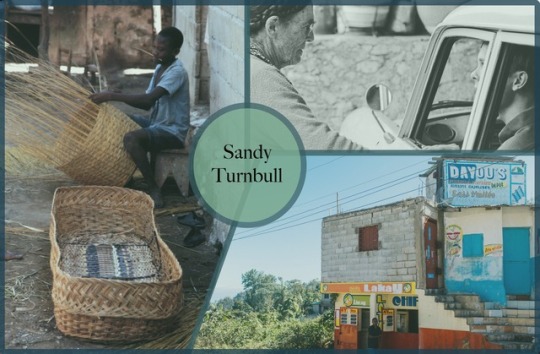
Dual Citizenship:
My “Half-way” World.
Creole is easier than English for a young child, and even today many things are easier and more efficiently said in Creole. Nonetheless, English was a must and came gradually through my inside–the–family world. My mom still laughs about one of the confusions it caused. One day, when I was two and a half years old, she laid me down at noon and tried to read me to sleep. The story ended, “serve God, and he will fill your heart with peace.” I mumbled, “I would hate God if he did that.” Feeling concerned for my spiritual understanding, she explained that I should want God in my heart so I would have peace. I insisted that I would hate God for that. When questioned why I explained, “When one puce bites me, it hurts I would not want a heart full!” I was confused because the word “peace” in English sounds to me like the word “puce” which means flea in Creole.
At the age of 4 and a half, I met a halfway world. It was life somewhere between these two worlds I had known. The world of “my people,” the local Haitians, and the world of my parents and their friends. Halfway between these two worlds were the children I came to know at Mrs. Scott’s kindergarten. This was 9 miles down the mountain from the mission in the residential suburb of Petitionville. The kids that went to the kindergarten were children of doctors, lawyers, merchants, and the educated. Most of these children were light mulattoes (a person who has either a white father and a black mother or vice versa) so far removed from the local Haitians I had known that the entire school year passed by before I could even believe they were Haitians. They were beautiful soft-faced children with individually tailored clothes and hairstyles, impeccable French, and polished manners. I knew from the beginning that I was a foreigner among them. At the school, I learned French, showed interest in drawing, and delighted in being a comedian. I loved Mrs. Scott, even though I never learned the tunes to her many French songs. I found Captain Scott, her husband, much more interesting. He kept fighting chickens for a hobby, and he would explain the merits of his prized chickens to me (rather than polishing a little boy with stilted French manners). At 4 PM I would hitch-hike home on what we called “tap taps” (pickup trucks converted into a form of public transportation) back to my two worlds. By the time I arrived home Christophe had the earthworms dug up and ready to go. Inspired by a United Nations’ project, my dad had made a little fish pond as a demonstration to the mountain people of how to raise fish as a source of protein for the children. Among the happiest of my childhood memories are the late afternoon or early Saturday mornings spent fishing with Christophe or my grandmother.
The country people have a philosophy, “If I have something today, I will share it, because tomorrow when I do not have anything, you will share with me.” Thus a dried biscuit, or a bit of raw sugar cane, or a bright crystal peppermint is always broken and shared. These tidbits were more special to me than wrapped foreign candy. Such native foods were forbidden because the germs of tropical disease hid in them; however, out of sight, I ate the food without qualms, because the Haitians did. Therefore, built up my immunity like theirs I suppose, for I was healthy and suffered none of the ills that beset many other foreign children. I believed what my parents said about “foreigners” getting sick from such food. However, I did not consider myself a foreigner. I knew I was not altogether Haitian, but I did not have any idea where the differences began.
Thus I grew up in a dual world– dual citizenship. A citizen of the English-speaking, clean, bacon and eggs breakfast world of my parents and the big, wonderful, not-to-clean Haitian world around me. The two seemed unmixed. When I was in the Haitian world, I spoke Creole and behaved like my playmates. I shared their humor and laughed over “Malice and Bouki” stories, which no foreigner thought was funny. Here I continued my education from 8 A. M. until 4 P.M each day, October through July. When I was five years old, my grandmother taught me to read English. At seven, I always waited in anticipation for the next Reader's Digest and National Geographic, which I have read continually since. I have been an avid reader and gone through available English and French libraries. At age eleven I completed the national examination for primary education. I was the only American child among the sixty-seven thousand who took the exam. That fall I entered a little new school in the capital city of Port-au-Prince, which was directed by Swiss educators. Here I felt happy and stayed busy. The halfway world continued as I entered regular school at College Tete-de-L’Eau. This was a private school operated by the French wife of the Minister of Finance.
0 notes
Photo
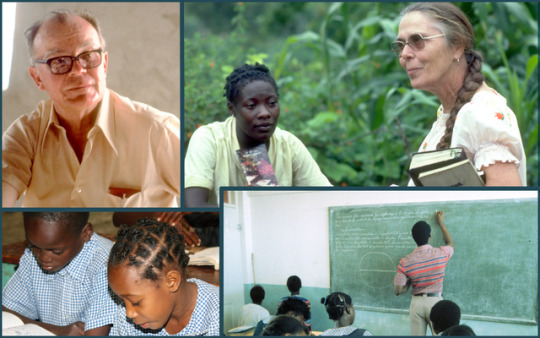
Dual Citizenship by Sandy Turnbull
Wallace and Eleanor Turnbull’s son, Sandy, wrote an article called: Dual Citizenship published 1969, about his struggle between being an American in Haiti. We have broken it down into three blog posts which will highlight Sandy's life in Haiti around the age of 8 and 9.
Introduction by Editor:
"This article by Sandy Turnbull, whose parents have been missionaries in Haiti for 20 years, is published because it offers a remarkable perspective, first-hand account of the experience of many dual cultural citizens. When a person lives in two different cultures, falling in and out of consciousness of each culture seems to be typical. This is especially present in the life of Sandy whom has genuinely participated in the life of both cultures. It is significant that Sandy does not mix his two worlds, but keeps them in distinct compartments of his psychological life. Of course, the experience of missionary children who live a life insulated from their field surroundings is entirely different and is by no means free of problems. I hope that this article will help missionaries understand the feelings of their children. Missions executives will find here food for thought to help them counsel missionary parents. And, of course, those interested in the effects on a personality by the confrontation of two internalized cultures will also find here some significant insights."
A day in shoes of Sandy:
This morning I slept until it was light. It’s Saturday, and I did not have to rush off to school at 6:30 a.m. I raised the window blind and watched the morning sun warming the high mountains of Godet across the ravine from my mission. The early morning clouds that formed over the 5,000 to 6,000 feet mountain peaks around us were being dissolved by the bright rays of the tropical sun. From my bedroom window, I saw the small whitewashed mud and thatch huts of our local Haitian neighbors.
From the mission hostel below our house came the early morning sound of children getting their tangled hair brushed and participating in various morning chores. Kuna, the oldest of the orphan children, was directing each one and giving orders for the day. Maricia, the cook for the hostel and hospital, was mixing milk, and singing in contentment. Zambie and Mona were counting aloud their syllables as they studied for school.
As I looked in each direction, I saw the lines of stone walls terracing on the eroded mountainside, already bare and burned from months of drought. I felt a surge of pride as I thought of my dad, already outside beginning the day’s activities. Almost every morning mom would call us to breakfast, where we would eat in our American-style kitchen, our American-style breakfast of bacon and eggs, and had morning worship from the book of Philippians.
This mixture of two cultures has been my life. My parents are active, dedicated people who felt compelled to leave the comforts of family and fortune in America and take up life in the high mountains of Haiti as missionaries. Into this environment of purpose and motivation, I was born on March 19, 1952. My parents had been in Haiti for six years when I was born. From my baby book, I learned that I was born long, skinny, and mostly arms and legs. My mother’s note in the “prenatal remarks” of my baby book was: “must be a double-jointed acrobat, the way he moves and flips.” This has remained a characteristic, even though I have grown to a fraction less than six feet in fifteen years.
Am I Haitian or American?
My birth certificate is in the French-language “Acte de Naissance” and is registered in Port-au-Prince, Haiti. Clipped to it is an American embassy registration of a child born of American citizens living abroad. This testifies to my dual citizenship. The two cultures, two countries, two languages and two loves have claimed my loyalty since birth. Inside our home, we are “American”– speaking English surrounded by good English books and periodicals. Outside the home is the world I have known and loved as “my world” from childhood. A local baundre (child nurse) and playmate taught me the native Creole before my parents could teach me English. I was nine years old before I knew English. Until then, parents, friends, books, and pictures had been my sole source of American information.
It was the familiar and smiling world of the local Haitians that I knew and loved. The dried herring in cornmeal, eaten with fingers among friendly neighbor children, was more of a special treat than the ice cream my mom loved. Only when my parents would begin to speak about giving me worm medicine (because of supposed tropical parasites taking my appetite) would I stay away from the big pots of “native” food, cooking over wood fires. I knew I should not overstuff myself at dinner time or they would blame the intestinal parasites and bring out the bitter and nasty vermifuge dropped in Castor Oil. After dinner, I would spend time with the children who with their dirty hands would break a piece of their half-baked sweet potato and give it to me, along with a penny pancake of grated manioc root. I always knew they loved me and were unselfish.
There was never a shortage of playmates. Christophe was one of my favorites. He was two years older than I and a hero to me. He was named after Henry Christophe who helped free the slaves from French domination. I thought he was fortunate because he did not have to be “chided” at about proper use of silverware or table manners (he did not use a table). His mother never told him to take his feet off the furniture for there was nothing but a rolled up straw mat and a hollowed out tree trunk for “furniture” in his house. At his house we were never punished because we tracked in mud– his house had a dirt floor. His dad wasn’t always getting on to him about holding his shoulders straight. Christophe had beautiful posture because, since he was little, he had been carrying tall cans of water balanced on his head. Another reason for being jealous of him was that he did not have to stand on his head to scrub the ring from the bathtub. His bathing routine was more like what our household considered a holiday outing. He hiked down the mountain to a stream, and there splashed and frolicked with other children for his bath.
0 notes
Photo
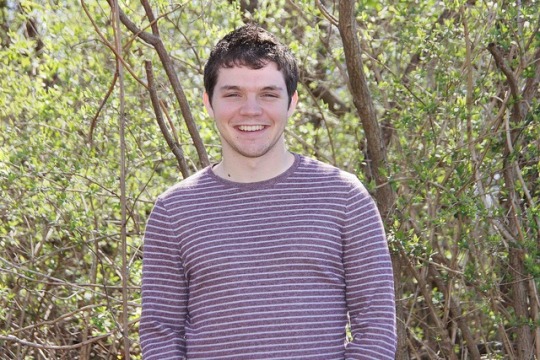
BHM’s Intern Reflection:
My name is Samuel Johnson, an intern at Baptist Haiti Mission. I joined the team at the office in Louisville, Kentucky on February 10th of this year, and it’s been a great ride. I have learned that having a great team matters and BHM is blessed with one. Dan Mcgill, the one who hired me, was a great boss. He was ex-military, which made him seem intimidating at times (especially in my interview), but what I came to appreciate the most about him was his caring spirit. When discussing work, he would often end or begin the conversation with a simple question—“How are you doing?” and contrary to American culture, he actually cared. Next, there is Alesha. If I had to describe her in one word, it would be “faithful.” Alesha handles many things, but her main tasks include projects that take a long time and are not the most glamorous to do, yet her effort has been the glue that keeps BHM functioning. Joshua, the Communications Coordinator, is funny, caring, godly, and humble. He works hard to portray BHM well to the digital world and does a great job at it. He is a good friend and has been a joy to work alongside. Last, is my new boss, who is the new Director of Development, Aaron Scott. Aaron came in to replace Dan McGill, who left for a military position in Germany and has been a blessing to work alongside. One thing that has impressed me the most about Aaron is his prayerfulness. He understands that unless God builds Baptist Haiti Mission, we will labor in vain. Unless God recruits the child sponsors, we will have the sponsorship in vain. Unless God supplies for the new hospital, our plans will be in vain. God must do the work, and Aaron trusts that God will accomplish it. This group of people is only a small portion of the team who works for Baptist Haiti Mission, and I am thankful for every one of them.
So why did I take the time to share about the people that I have worked with in the past few months because people are what constitute a ministry. By the grace of God, BHM is in good hands, and I want people to know this fact. It can be noted that when God provides godly, prayerful, and fruitful workers for a ministry, He is often at work in blessing that ministry. I believe this to be the case with BHM.
I will be leaving soon for another opportunity that God has opened up, and I do not know if the Lord will have me serving at BHM again, but I am grateful for my time here, and I am excited for what God has in store. I will be praying that God moves in Haiti and brings about the salvation of lost souls for His glory, and I ask that you also join me in this endeavor.
1 note
·
View note
Photo
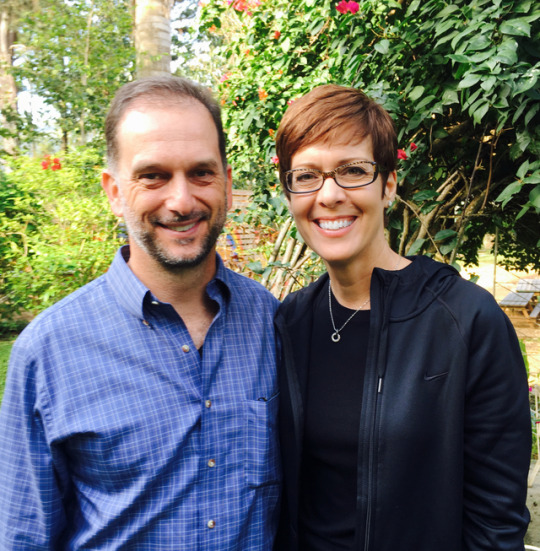
Mission and Vision of Andy Lambert
It is with humble gratitude that I write to you as the new Field Director for Baptist Haiti Mission! I stand in a long line of faithful leaders for the mission, which started with Wallace and Eleanor Turnbull in 1948. To say that I have big shoes to fill is an understatement of enormous magnitude! And yet every one of these gentlemen would agree that the work accomplished through Baptist Haiti Mission is God’s work, and I am convinced of the same. So, as I step into this role, I am reminded that it is a wonderful privilege to serve our Lord and Savior in this way. Both Kristin and I are incredibly grateful to God for the way He has orchestrated events that have led to this appointment.
Perhaps a little personal history would be helpful. My wife and I have both been walking with the Lord for over twenty years and have learned to see His hand in the way He orchestrates details and seasons of our lives. We have moved numerous times, and together we lived in England for two years; separate from Kristin I have lived in Turkey, Iraq, and Korea. We have had the opportunity to belong to at least a half-dozen churches during our marriage and to visit many, many more during our travels. Together we have experienced God’s provision, not only in material ways but in the most significant spiritual ways. One thing we can both say with confidence is that God is faithful! As He moves in our lives, He prepares us for opportunities and challenges that we cannot even begin to anticipate –perhaps the greatest of which is being appointed Field Director of BHM!
As we look back over 15 years of marriage, as well as the decades before marriage, we are constantly amazed at what the Lord has done. On at least three separate occasions we have seen the Lord provide ministry opportunities that were completely unexpected and unsought. As a newly married couple living in Missouri, God placed in our laps the opportunity to lead a Bible study for ROTC college students. We did absolutely nothing to precipitate that event. Years later in a new location, after waiting and praying for several months, God opened the door to teach Sunday School to young married couples. Again, God orchestrated the situation and details while all we did was wait and make ourselves available. The third and most amazing example is our current calling to Baptist Haiti Mission. After two-and-a-half years in seminary, God once again orchestrated events, conversations, and circumstances to provide an opportunity to serve in a way we never expected. In all three of these examples, there is one common theme: God was the author and source of our service in His Kingdom.
Andy Lambert’s: Mission and Vision:
I will admit that taking on Field Leadership of Baptist Haiti Mission is a big, multi-faceted role. It’s exciting and intimidating at the same time! There is much to think through regarding how to move forward and continue the work that has already been in place for over seven decades. Clearly, the top priority at hand is to continue to see disciples made in the nation of Haiti. This requires a continued proclamation of the Gospel and an unrelenting faithfulness to the Bible on the part of BHM. The same is true of our friends in the Association of Baptist Conservative Churches in Haiti (ASEBACH). As we work on this together, our vision is to see Colossians 1:28 in action: “Him we proclaim, warning everyone and teaching everyone with all wisdom, that we may present everyone mature in Christ.” This will inform how we proceed with theological education in a variety of venues, i.e. conferences, Summer Bible Institute, the Master’s Program, and primary school education. It will also keep us focused on the spiritual needs of individuals such that our concern is not merely for the Mission, but for the salvation and maturity of individual Haitians.
As theological education continues, there are many other opportunities to engage on a daily and weekly basis. We anticipate a day when we can see the hospital (HDF) revitalized. We look forward to seeing the ministry at Camp Le Phare continue and expand. We will continue to look for ways to improve our efforts in economic development, particularly through Mountain Maid. And we want to expand our delivery of Child Sponsorship, as we have seen that reaching children with the Gospel is the best means of long-term cultural impact. Additionally, there is an urgent element of facility and infrastructure recapitalization that is necessary if we are to see another 25 or 50 years of BHM ministry continue.
Personal Reflection
In the hectic pace of daily life, it is easy to forget that faithfulness is a key attribute about which God cares. The parable of Luke 12 teaches us that we must be faithful with what we have been given. We see the same principle in the Old Testament when the relationship between the Israelites and God is routinely judged based on their faithfulness in worshipping Him alone and taking His law seriously. God has now given us much responsibility in His kingdom, which is both a wonderful privilege and a great responsibility. We are thankful for those who have served faithfully, and we pray for the amazing families and individuals faithfully serving in Haiti with BHM. Please Pray for them!
Andy Lambert Field Director
0 notes
Photo
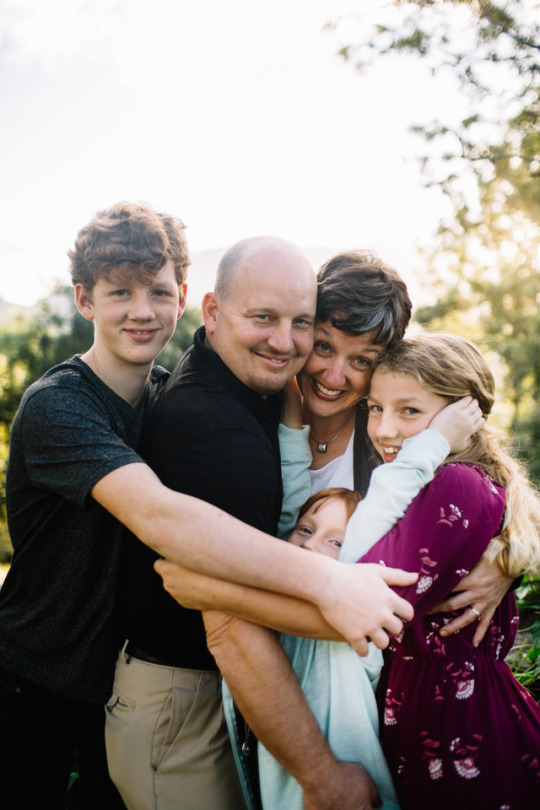
Dearing Family Update!
Hi, friends, this February we were able to enjoy the states as a family that included one last visit for Melanie to spend with her grandmother before she was promoted to heaven. We rejoice in her salvation as it did not come until later in life. While in the states, we sold many Mountain Maid items and made contact with a music store to sell guitar straps.
One back in Haiti, March brought a week of master’s classes for Mark and caused him to work half days because of classes and homework every night. What is great about these classes is that they meet for a week and homework is due later in the month. Mark loves this type of schedule.
After the Master's program, the North Vernon team come here for the first of their two visits each year. It was a group of only two, but both are in children’s ministry at our sending church and have made multiple trips to this community in Haiti. They spent two days visiting with people and their pastor asked them to visit us as well. In two of the homes, they visited they met with families who were suffering from loss. One family grieved due to the death of their 13-year-old daughter and another because of a spouse leaving. These men attended the funeral of a 13-year-old girl in their church, and another knew all too well, the pain that comes when a spouse leaves. They opened their hearts to share of their heartaches in this area and were able to be men of 2 Corinthians 1, comforting others with the comfort that they had received. It was truly beautiful.
While the men were here, we had an unusual opportunity to go to an Open House at the school for the deaf. You have probably read about Chama, the little girl that was identified when these guys were here one other time. She is now in the school along with Jacklin, a young man who is only three years away from graduation but was unable to pay the fees to return to school. An individual in the church above paid for both students to go to school, for uniforms, for books, for medical exams, for supplies, for clothing: everything! This church feels responsible for little Chama since she is a member of their church. Praise the Lord! WHAT AN IMPRESSIVE RESIDENTIAL SCHOOL!
National Church Conference overlapped the visit of the team, and the campus was bustling with guests! All of the directors of the mission were in attendance. For a mission that is over 70 years old, it is amazing to know we have only had four field directors. Our new director will move tomorrow. Please be in prayer for Andy and Kristin Lambert. Andy has been working from the home office, and we appreciate his leadership skills already…even from a distance. We are all hopeful, but know this will be a transition and adjustment for him and his lovely wife. Please pray for them as they come to mind.
Our children are trying to wrap up their school work before we head out in June which is always a challenge. Lydia and Melanie went to Hinche in the Central Plateau to visit the children we sponsor. It was more exciting than we wanted it to be with many wrong turns and even getting rear-ended. The good news is we were all safe, and the bad news is that we only got to spend a short time with our sponsored children. We did, however, stop in to see Blake’s sponsored child though Blake was unable to come along. Blake's sponsored child has grown so much that Melanie did not recognize her. Melanie showed the little girl a picture of Blake and asked her who it was, and she said, “Blake!” Just goes to show what one interaction can do for a child. Clay, our son, is behind on some of his schoolings because he stayed at the camp for a week to assist with a team of teenagers this was his first mission trip. It was outside of his comfort zone, and he even tried to get out of it, though we knew he needed to do it. He asked us to let him stay home, and we agreed to think about it. He left the room, and we looked at one another and decided he needed to go. The next morning he asked if we had talked and Melanie said yes. He said, “I am going, aren’t I?” She said, “Yes.” He shared that he heard a voice say to him, “Pack your stuff, you moron.” We appreciate that the Holy Spirit speaks to us individually. ;) The students were welcoming of him. Thankfully, it was a small team with only one boy and his dad, so they were glad to have another guy. And wouldn't you know he had a great week. The world, however, for Melanie, got a bit smaller with this team, as Melanie had met 3 of the four adults on this team at different times of her life. One as a child, another as a college student, and another the weekend we shared with our church about our move to Haiti. It was spiritually refreshing to see people who were reminders of what the Lord has and will continue to do in us.
Mountain Maid received a redesign while we were in the U.S. This meant us closing one of our buildings and moving the bakery and plants into the main shop. We already see the benefits of having everything together and the plants sure make things beautiful in the front window. Mark has been trying to spruce things up in the shop a bit, and the greenhouses are in demand. Just like Lowes in the U.S. in spring! I think this wraps up our March! Thank you for your continued love, support, and prayers of our ministry with Baptist Haiti Mission and Mountain Maid.
0 notes